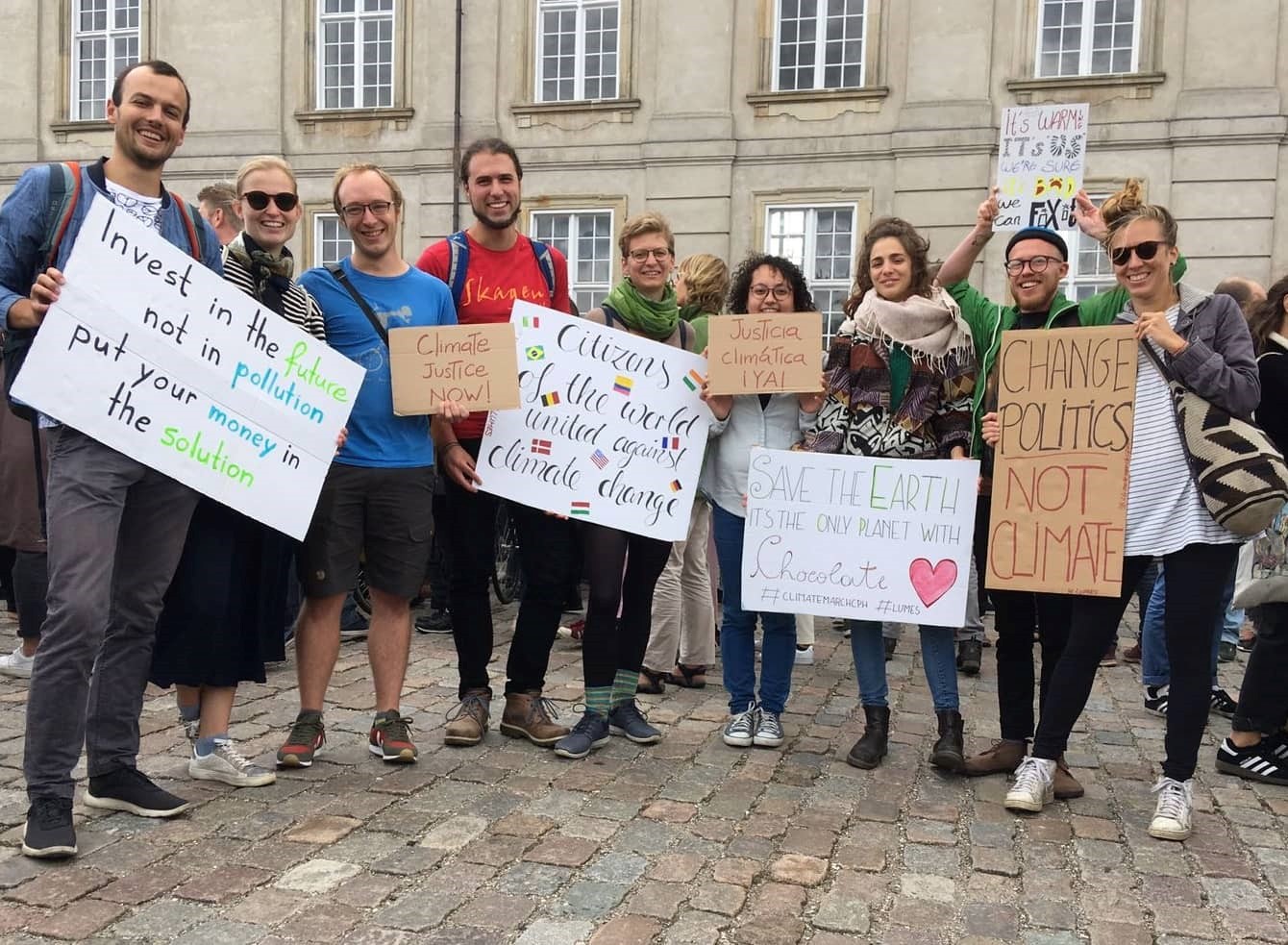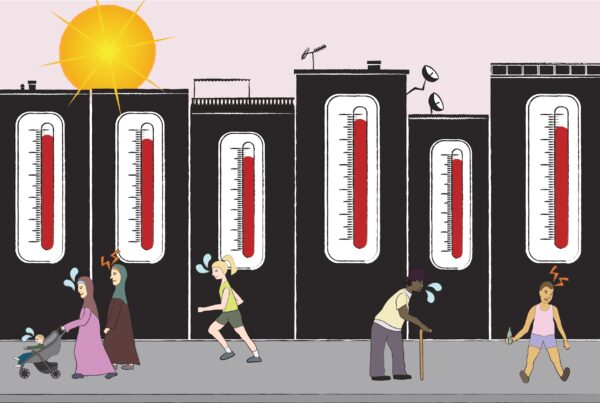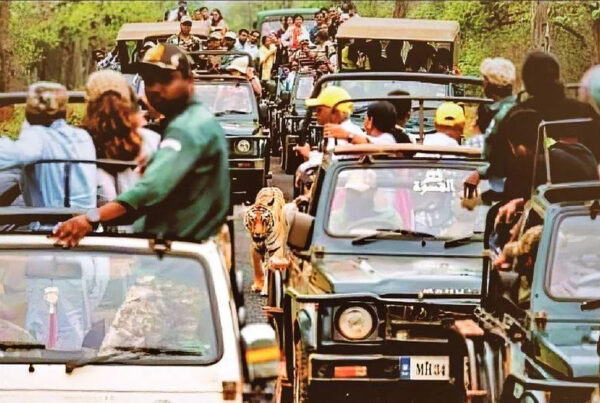By Laura Betancur Alarcón
White savior complex, elite studies in the green Scandinavia and other millennial adventures. Can the political ecology approach shed light on the incongruities, flaws and political struggles behind “traveling abroad to save the world”?
I am attending a sustainability class in one of the best universities in the world. A ‘privilege’ that few people can enjoy. I have traveled around 13.000 kilometers from my country to Scandinavia for learning how to deal with the complex sustainability trade-offs in a ‘shrinking-doomed’ world heading to its destruction, according to the Anthropocene narrative. It is treating. Especially, for my country, Colombia, with the Amazon forest, biodiversity, armed conflict and coca plantations (Yes, I know my script about our eternal resource curse).
Next to me, there is a German girl, who some years ago has also traveled thousands of kilometers – let’s say to Kenya or Bolivia – to work as a volunteer in a conservation initiative in rural areas. Like me, she has also crossed a continent or the entire ocean to contribute to the noble cause of “saving the Earth”.
I am here trying to learn from the Scandinavian perspective about sustainability, innovation and all the green solutions that I repeatedly see in social media: the cities of bikes, countries where solar and wind are powering the households, a paradise of recycling… She learned, during her gap-year, about the complexity of socio-ecological contexts: poverty, biodiversity, difficulties of every day, music and cultural differences.
We are both aware of the monumental challenge of environmental degradation, the need for cooperation and the urgency for solutions. We both believe that our actions and decisions will define the future of the next generations. But, are our travels by themselves another evidence of how ruling narratives about knowledge-production are reproducing the historical patterns of domination (in this case, in the study of sustainability)? Can the political ecology approach shed light on the incongruities, flaws and political struggles behind “traveling abroad to save the world”?
To what extent are the thousand volunteer programs, the scholarships for low-income countries to study in Europe, or the training exchanges between students from different countries tools of the dominant developmentality rhetoric? Or do these programs create possibilities for a genuine encounter of people and ideas for a structural transformation of our societies? It seems to be a context-dependent answer, but also a challenging inquiry in the era of information society full of invisible global connections.
Without any intention of generalizing knowledge exchanges or personal approaches to experiences abroad, the trend of the white savior complex of conquering rural areas in Africa with aid packages and Instagram galleries of kids – as hilariously portraited by Barbie savior or the Rai-Aid project – can be understood as a practice within the regime of truth of Western societies of imposing historical colonialist patterns of domination.

The critical humor of the Barbie Savior Instagram account highlights the “white savior” attitudes of some volunteering projects. Source: https://www.instagram.com/barbiesavior/.
The logic behind the voluntourism or the narratives behind of the one-lifetime experience of cleaning beaches in Indonesia can be reviewed by political ecologist scholars to understand the flows of knowledge/power systems and how these impact the material realities of local contexts. Besides, it can be understood how those dynamics reinforce the multi-scalar tights within the global system.
But this story of traveling abroad with the mindset of contributing to solving environmental issues is not a one-way street from North to South. The branding strategies of different universities of high-income countries (see, for instance, the inspirational video of Study in Sweden, a country with around 35.000 new incoming students per year) are aiming to build a narrative of these educational institutions as the spaces where the most innovative knowledge is being constructed to solve global challenges.
Like many of the applicants for scholarships, I truly claimed my interest in learning about the Swedish–European approaches to deal with sustainability issues to implement them once I am back in my country. In a way, I still believe that the reasoning of learning the best practices to promote sustainable transitions in other regions is still acceptable.
However, the educational journey of the last year and a half made me realize – while I am sitting here in class listening about the debates of degrowth, eco-modernization and windmills in the Netherlands – how dislocated the knowledge production is from the spatialities which it refers to. And, how the knowledge/power constructions are perpetuating visions about nature and society strongly influenced by modernist-colonialist approaches.
In other words, as expressed by Paul Robbins, it is a challenge within the field of political ecology to analyze and self-reflect to what extent the scientific knowledge of even critical environmental researchers can be inserted in the logic of western dominance. What are the implications of that process in constructing symbolic meanings and therefore changing the material developments and practices where power is being reproduced? It is a persistent inquiry.

Advertising campaign for studying in Sweden. Source: www.facebook.com/studyinsweden/
I am aware that there is not white or black in untangling these contemporary practices of international experiences. In fact, global arenas possess the potential to link the struggles of the Global North and the Global South in order to create less destructive models of socio-natural life, as Arturo Escobar suggests. These transitions might require conjunctive efforts from scholarships, social movements and NGO’s from different parts of the world.
In that sense, these travels and practices of international exchange can also be perceived as exciting experiments to deconstruct and reimagine the political and socioecological connections that cause environmental degradation and injustices around the world.

A group of master students from different nationalities participating in a climate march in Copenhagen, Denmark. Source: www.facebook.com/LumesLundUniversity/
While I am still sitting in this classroom in Scandinavia trying to understand sustainability science, I recognize the need of inquiring the knowledge/power dynamics behind all these kilometers traveled from different latitudes in search of explanations of, and answers to, global environmental destruction. Hopefully, in my case and in the case of the German girl sitting next to me, this experience might contribute to a reflection about how to re-configure the power practices that today lead us to travel around the world in an attempt to “save” it.
Laura Betancur Alarcón is student of the International Master Programme in Environmental Studies and Sustainability Science (Lumes) at Lund University in Sweden. She is an environmental journalist from Colombia. Her current research project focuses on water justice and environmental peace-building.




Reblogged this on POLLEN.